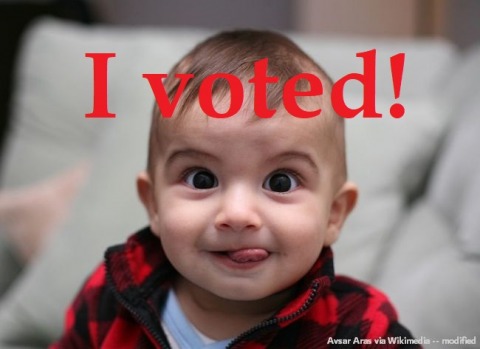
The coalition that has just taken power in Germany has announced that among other things, it wants to lower the voting age to 16. The proposal isn’t surprising, because most coalition supporters are young. Enacting it would require a constitutional amendment.
Needless to say, a lot of people everywhere think the very young should vote. I’ve heard suggestions to reduce the voting age to 12. A 2011 article in The New Republic seriously proposed – if any such proposal can be called serious – that every citizen have a right to vote from birth. Quite a few adolescents are included in the ranks of social media “influencers.” Consider the career of Greta Thunberg, who has been lecturing the world about what to do about climate change since age 15.
We used to venerate age and experience. Now we venerate youth and callowness. But we knew that already. Let me get to my point.
People who discuss lowering the voting age – not only those for it but also those against – assume that it would mean a transfer of political influence to the young.
That is absurd. It would mean no such thing.
Although the very young are often very sure of their opinions and convinced that they have made up their own minds, they lack the maturity to form their minds independently. So to lower the voting age would not mean increasing the political influence of the young. It would only mean increasing the political clout of those who have influence through the young.
Pop stars. Sports coaches. Schoolteachers. Writers and editors of media aimed at teens. Especially people in such groups who have no children of their own to take up their time and attention.
I hope none of us were thinking that classrooms full of pre-teens who just happen to write letters about their teachers’ favorite issues to the president are getting the idea on their own.
Increasing the political clout of certain grown-ups through the medium of the young would have a secondary effect too. It would vastly increase the political stakes in the institutions through which these people gain access to the immature minds whom they seek to influence. So one could expect further politicization of entertainment, primary and secondary education, youth athletics, children’s and “young adults” books, and teen magazines and media.
Political persuasion would become an even more important motive for entering these fields than it already is – and anyone who thinks it isn’t already a motive hasn’t been paying attention.
In all ages up to this one, the chief influencers of young people have been parents. Now, not so much. We seem to be okay with that. Why we are is a very good question, to which no one seems to have an answer.